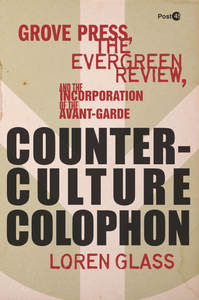Kate Tempest: The Bricks that Built the Houses: A Novel
July 5, 2016 by David
Filed under Fiction, WritersCast
 9781620409015 – Bloomsbury USA – 416 pages – Hardcover – $26 – ebook versions available at lower prices, paperback scheduled for February 2017
9781620409015 – Bloomsbury USA – 416 pages – Hardcover – $26 – ebook versions available at lower prices, paperback scheduled for February 2017
I found out about Kate Tempest more or less accidentally, through an odd set of search results one day while fooling around on YouTube, and therefore I must thank the seemingly strange, but often wonderful algorithms of its search tools. What a discovery! After seeing and hearing Kate’s poetry performances, I immediately bought her books and was completely enthralled.
I don’t seem to have too many poetry friends who know about Kate’s work, and that is a shame. She is British, and young, and very modern in affect. But she is an old soul, with a deep and powerful intellect, and her voice is one that I find both compelling and mesmerizing. I think she is simply a great writer, and stands out for the power of the words she marshals as well as the intellection that informs those words.
If you have not heard or seen Kate Tempest, or heard of her work, I’d urge you to visit YouTube now, and spend some time with her work. You might want to start with the incredible poem “Progress” (which you can also read to yourself in her book Hold Your Own). The video of her performing this poem gives you just a taste of what her work is like. It’s a remarkable commentary on religion and meaning. Tempest has got a lot to say and says it powerfully and clearly, with an almost religious (or in this case anti-religious) fervor. It’s totally captivating to listen to her syncopated rapping poetry. She has got the fever.
Kate has expanded her narrative abilities, moving from hip hop poet to playwright and now to novelist, an amazing journey that not very many poets or performers have undertaken. Usually poets are best at short bursts of ideas, or word paintings, they are not often masters of narrative, and while there are certainly poets who have written novels, novelists who write poetry, and songwriters who tell great stories, it’s not am easy thing to move from these genres to the more expansive form a novel takes, and the concentration on detail and complexity of characters as well.
From what Kate told me when we talked, she conceived this story first for one of her rap albums, and then carried the novel around with her while she toured with her band, alchemically transforming the story from poetry to prose, somehow managing to find the time and emotional space to get it down whole whilst on the road (and then later rewrote and rewrote to get it done).
The book is told in flashback from a powerfully lyrical opening scene, and it takes the reader some time to get her bearings and then to figure out who the various major and minor characters are, how they are related, and how they interact. But as the story unfolds, we begin to understand the journey, and these characters become indelible and specific, telling a story that is compelling and intense – and morally ambiguous. This is a modern wrapper around an ancient story, impossible to put down as it moves forward with breathless energy and heart felt imagination.
I really enjoyed talking to Kate about this novel and her work as a writer and performer. We talked in the New York office of her publisher, Bloomsbury USA.
Kate Tempest was born in 1985. She grew up and still lives in South-East London. She started out as a rapper, and a poet, and began writing for theatre in 2012. Her work includes Balance, an album she made with her band Sound of Rum; Everything Speaks in its Own Way, which is a collection of poems published by her own imprint Zingaro; GlassHouse, a forum theatre play for Cardboard Citizens; and the plays Wasted and Hopelessly Devoted both written for Paines Plough theatre and published by Bloomsbury Methuen. Her epic narrative poem Brand New Ancients won the Ted Hughes Award for New Work in Poetry. Everybody Down, her debut solo album, came out on Big Dada Records in 2014, and is the direct precursor to her novel The Bricks that Built the Houses. Her most recent collection of poems is Hold Your Own; it’s based on the myth of the blind prophet Tiresias (I recommend you find and read this book; the language is fantastic).
“As Tempest’s gorgeous streams of words flow out, they conjure a story so vivid it’s as if you had a state-of-the-art Blu-Ray player stuffed in your brain, projecting image after image that sears itself into your consciousness” – New York Times
In the old days,
the myths were the stories we used to explain ourselves
but how can we explain
the way we hate ourselves?
The things we’ve made ourselves into,
the way we break ourselves in two,
the way we overcomplicate ourselves?
But we are still mythical.
Podcast: Play in new window | Download
Loren Glass: Counterculture Colophon
August 5, 2014 by David
Filed under Non-Fiction, WritersCast
 Counterculture Colophon: Grove Press, the Evergreen Review, and the Incorporation of the Avant-Garde (Post*45) – 978-0804784160 – Stanford University Press – Hardcover – $27.95 (ebook versions available at substantially lower prices)
Counterculture Colophon: Grove Press, the Evergreen Review, and the Incorporation of the Avant-Garde (Post*45) – 978-0804784160 – Stanford University Press – Hardcover – $27.95 (ebook versions available at substantially lower prices)
This book has turned out to be one of the most influential on my recent thinking about publishing and how it should work, proving that history can tell us a great deal about both the present and the future. Grove Press was immensely influential in changing American culture from the 1950s through the 1980s, and remains meaningful today, with its massive backlist representing the golden age of the literary avant-garde of that time. Its longtime owner and spiritual leader, Barney Rosset, has been an almost mythic hero to many who got into publishing because of what he accomplished with Evergreen Magazine and Grove Press. How a publisher could become so powerfully influential makes for a terrific and inspiring story.
Grove’s accomplishments and innovations are legion and well documented by Loren Glass in this book. While Counterculture Colophon is written as an academic history, and sometimes Glass falls prey to academic terminology that may put off the non-scholarly readers, I was happy to overlook the academic jargon and focus on the compelling story he tells of Grove and what it has meant for modern publishing.
This heroic and sometimes tragic saga reminds us of what it means to be a passionate and committed publisher. It’s difficult for anyone alive today to believe that up until the 1960s it was illegal to publish and sell literary books that included sexually explicit content. Battles were fought – and finally won at great expense – by Grove Press against the US government and many local jurisdictions over DH Lawrence’s Lady Chatterley’s Lover, Henry Miller’s Tropic of Cancer and William Burroughs’ notorious Naked Lunch. These cases literally led to “the end of obscenity” and created the groundwork that has enabled modern literary publishing to flourish in our time.
Rosset and Grove, together with myriad editors and publishers in Paris, London, San Francisco, and New York, were at the heart of a revolution in publishing, both in content and in form that in many ways inspired and led directly to an equivalent revolution in the overall American culture, that reverberates today. Grove was at the heart of political, cultural and literary ferment in North America, introducing new voices not only from here, but from around the world, to American readers. Rosset more or less invented the trade paperback, and was a leader in introducing trade books to be used as supplemental reading for college courses, of course hitting its stride at the very moment that the Baby Boom generation went to college. The magazine and press brought an emerging set of writers to an emerging generation of readers, inspiring and changing the way millions read and thought about writing, politics, theater and art. Grove Press was as much a cultural institution as it was a publisher.
And, importantly, what this book most strongly highlighted for me is the meaning and power of a publisher’s brand. It is widely accepted that most publishers today have no identity with readers. Grove Press and its house literary journal, the Evergreen Review, were made into powerful and coherent brands that recognized the publisher as enabled it to introduce formerly unknown writers and artists to their audiences. Using graphics, typography and a consistently subversive publishing program, Grove was able to become a recognized brand for readers, the power of which, seemingly very few publishers have understood or been able to duplicate.
Counter Culture Colophon is a book I strongly recommend to anyone interested in contemporary literature and of course, publishing. Loren Glass was able to interview Rosset and many other principle players in the story of the press. And for many, it will be a truly inspiring tale.
Loren Glass is a Professor of English at the University of Iowa. There is a really nice video of Glass speaking about Rosset and Grove at the Chicago Humanities Festival here. (55 minutes)
Podcast: Play in new window | Download

